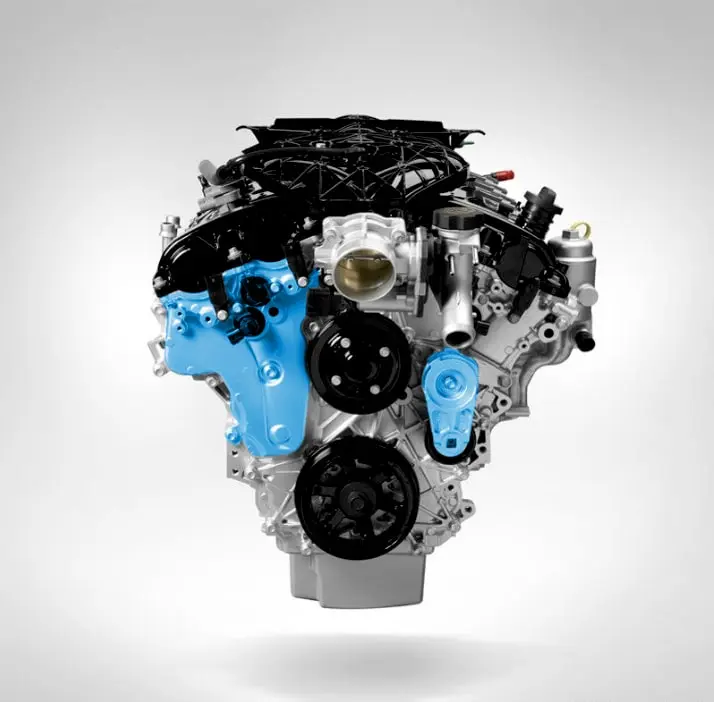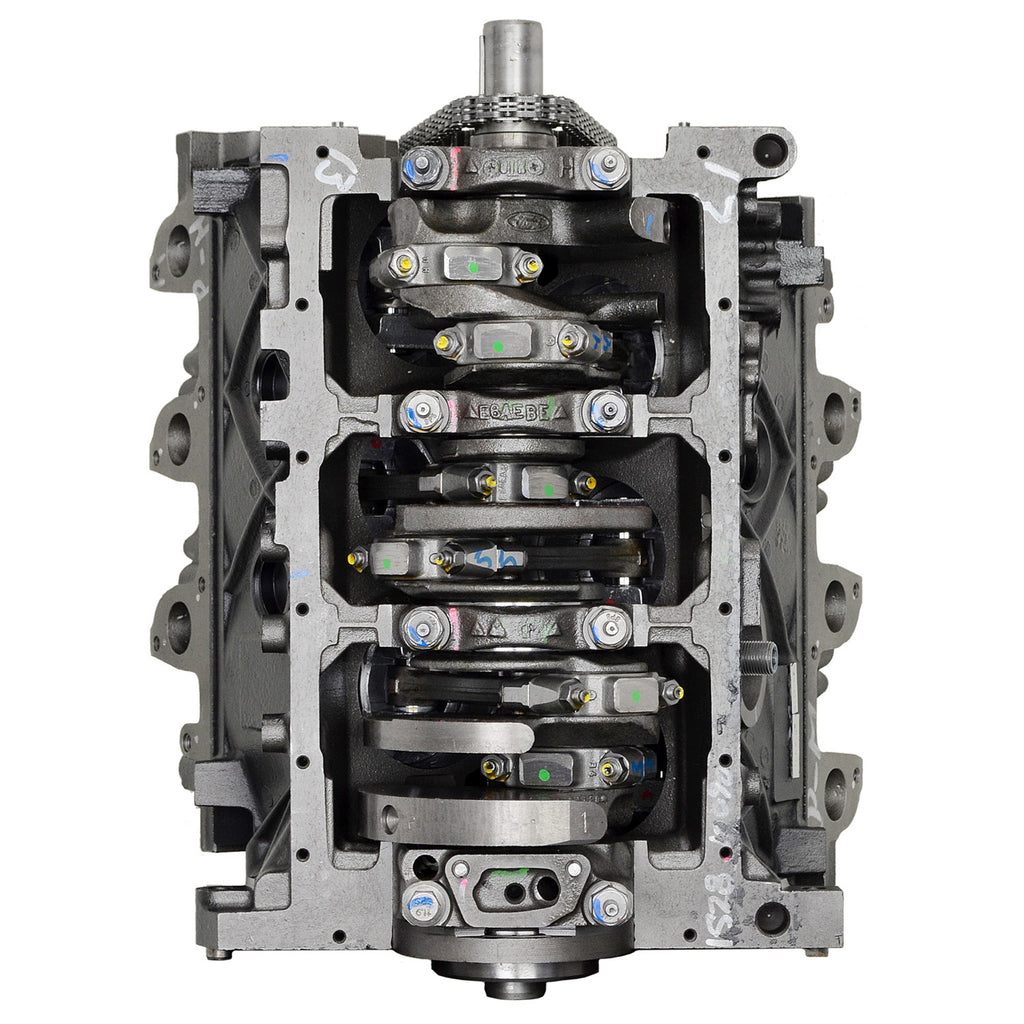How to Maintain and Optimize the 2.2 Ford Ranger Engine for Long-Lasting Performance
How to Maintain and Optimize the 2.2 Ford Ranger Engine for Long-Lasting Performance
Blog Article
Just How to Select the Right Vehicle Engine for Optimum Efficiency and Effectiveness
Picking the appropriate cars and truck engine to accomplish an optimal balance of efficiency and effectiveness requires a nuanced understanding of numerous engine types and their certain attributes (2.2 ford ranger engine). Aspects such as engine displacement, the number of cylinders, and fuel kind play a crucial function in identifying both power result and gas economy.
Recognizing Engine Types
When picking a car, among the most vital components to consider is the engine type, which acts as the heart of the vehicle. The engine kind dramatically influences the auto's general performance, durability, and viability for your driving needs. There are mostly three engine kinds to think about: interior burning engines (ICE), hybrid engines, and electric engines.
Interior burning engines remain one of the most common, operating gasoline or diesel. They are understood for their power and velocity, making them ideal for performance-oriented vehicles. However, they might fall brief in gas effectiveness and environmental impact.
Hybrid engines incorporate an interior burning engine with an electrical motor, supplying an equilibrium in between efficiency and gas economic situation. They are increasingly prominent for chauffeurs looking for minimized discharges while still providing adequate power.
Electric engines, powered completely by batteries, are acquiring traction as a result of their environmental advantages and lower running costs. They supply instant torque and a peaceful driving experience, making them ideal for urban commuting.

Performance vs. Performance
Picking the appropriate engine type includes considering the trade-offs between performance and effectiveness. Performance generally refers to exactly how well an engine can provide power and velocity, which is usually associated with bigger variation engines or those with turbocharging abilities. These engines usually give exhilarating driving experiences and fast reaction times, making them preferred amongst lovers.
On the various other hand, efficiency concentrates on fuel economy and lower exhausts. Smaller sized engines, particularly those outfitted with sophisticated technologies such as straight fuel shot and variable shutoff timing, tend to supply far better miles per gallon and reduced carbon impacts. While these engines might give up some power compared to their larger counterparts, they typically succeed in day-to-day driving circumstances where high efficiency is not always necessary.
Inevitably, the selection in between performance and effectiveness depend upon specific top priorities. A vehicle driver who values spirited driving may prioritize a high-performance engine, while a person looking for cost-efficient commuting might favor an effective alternative. Comprehending these trade-offs is important for making an educated choice that lines up with your driving requirements and way of life, making sure that the chosen engine type matches your assumptions for both efficiency and performance.
Secret Requirements to Take Into Consideration
Recognizing crucial specifications is vital for making a notified decision about the ideal automobile engine. When picking an engine, a number of vital elements necessitate consideration to guarantee optimal performance and performance.
Firstly, engine displacement, determined in liters or cubic centimeters, is a crucial spec. It indicates the total quantity of the engine's cyndrical tubes and typically correlates with discover here power output; bigger displacements often produce more power. Next off, the number of cylinders plays a considerable role in efficiency characteristics. Engines with even more cyndrical tubes can give smoother operation and higher power, while smaller sized configurations can enhance gas performance.
Additionally, the engine's arrangement, whether inline, V-type, or rotary, influences the general style and efficiency qualities of the automobile - 2.2 ford ranger engine. Turbocharging and supercharging technologies must additionally be assessed; these boost an engine's power result without significantly boosting its dimension, therefore enhancing effectiveness
Gas kind is an additional crucial consideration, as it affects both efficiency and prices. The engine's compression ratio affects efficiency and power shipment; a higher proportion typically leads to better effectiveness, yet might call for exceptional fuel. By very carefully analyzing these specifications, you can pick an engine that lines up with your efficiency and effectiveness objectives.
Examining Driving Demands
Assessing driving needs is an essential step in determining the right car engine for your way of life and usage patterns. If your driving primarily is composed of short commutes in city settings, a smaller sized engine with great gas effectiveness might be adequate.
Think about the surface you normally navigate. Hilly or tough landscapes may require an engine with higher torque for much better efficiency. Furthermore, assess traveler and freight needs; larger family members or those who deliver goods might gain from cars with raised power and ability.
Diesel engines frequently use remarkable torque and gas economic climate for much heavier lorries, while fuel engines might offer a smoother and quieter experience. Aspect in ecological considerations, as crossbreed or electrical engines can supply a much more lasting alternative without compromising performance.
Future Fads in Engine Innovation
As the vehicle market remains to advance, advancements in engine innovation are leading the way for a lot more lasting and reliable driving experiences. One considerable trend is the shift towards electrification, with hybrid and totally electrical powertrains obtaining importance. Automakers are spending heavily in battery modern technology to boost energy thickness and minimize charging times, ultimately improving the functionality of electric lorries (EVs)
One more arising fad is the development of hydrogen gas cell engines. 2.2 ford ranger engine. These systems provide the possibility for zero-emission driving while giving refueling times similar to conventional fuel engines. Additionally, advancements in combustion modern technology, such as variable compression ratios and improved turbocharging, are optimizing standard inner combustion engines for far better effectiveness and efficiency
Digital combination is likewise an important element of future engine technology. The application of expert system and artificial intelligence permits real-time information evaluation, enabling smarter engine administration systems that adapt to driving conditions and improve fuel performance.

Conclusion
Finally, picking the suitable automobile engine necessitates an this hyperlink extensive evaluation of Bonuses different variables, consisting of engine kind, performance needs, and efficiency goals. By comprehending the differences in between various engine kinds and considering essential specs, individuals can straighten their selections with details driving needs. As advancements in engine technology remain to emerge, staying notified regarding future patterns will certainly additionally boost decision-making, inevitably leading to a lorry that balances efficiency and gas performance successfully.
Picking the proper car engine to achieve an optimum equilibrium of efficiency and effectiveness requires a nuanced understanding of different engine types and their particular attributes. There are primarily 3 engine kinds to think about: interior combustion engines (ICE), hybrid engines, and electric engines.
Efficiency normally refers to just how well an engine can provide power and acceleration, which is frequently associated with bigger variation engines or those with turbocharging capacities. Diesel engines usually use remarkable torque and fuel economy for heavier lorries, while gas engines may give a smoother and quieter trip.In conclusion, selecting the proper automobile engine necessitates a thorough analysis of different factors, consisting of engine type, efficiency demands, and efficiency objectives.
Report this page